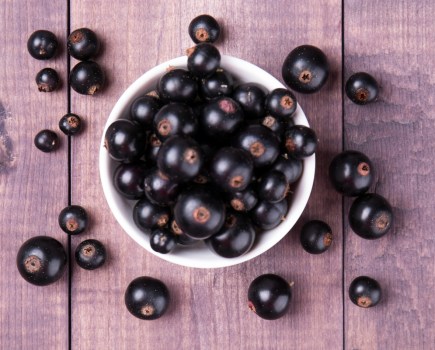We recruited some nutrition experts to answer your burning questions about all things food – from advice on juicing to the truth behind skipping breakfast for weight loss…
Q: Is juicing a good idea when trying to lose weight?
Lola Biggs, dietitian at natural supplement brand, Together Health:
‘Juicing is a great way to get your vitamins, boost energy and support your immune system, as well as for anyone who struggles to get enough fruit and veggies into their daily diet – however while juicing can help with weight loss, it should be part of a well-balanced diet.
‘Think of juicing as an additional way to get goodness into your diet throughout your weight loss journey – not as a meal replacement. Load your juices with the right fruits and veggies and they can make a healthy and delicious addition to your overall diet.
‘When it comes to juicing ingredients, shop-bought juices are often heated, which can deplete natural goodness and they also sometimes contain artificial flavours, preservatives and high levels of sugar – not ideal for healthy weight loss. To get the greatest health and weight loss benefits from juicing, making your own is key.
‘Follow a simple rule of thumb to keep on top of natural sugar content: for every serving of fruit, add two portions of veg. More vegetables added mean less sugar and the same level of goodness. Beneficial ingredients to include are watermelon, carrots, cucumber, spinach, pomegranates, pineapple, beetroot and ginger.
‘I like to add lemon and ginger to my juices. These cut through the veg and add flavour without the high sugar fruit content. I’m also a fan of adding fresh mint as it’s an excellent digestive aid.’

Q: How can my diet help with my currently high stress levels and are there any foods that could trigger stress?
Lola Biggs, dietitian at natural supplement brand, Together Health:
‘Stress can impact your body in all sorts of ways. There are certain foods that can make symptoms worse while others may have stress-relieving qualities. I’d always recommend eating a rainbow every day. Most fresh fruit and veg are full of vitamin C. This is stored in the adrenal gland and is required to make cortisol.
‘Try and aim for a minimum of five portions of fruit and vegetables a day along with some of these foods: matcha powder as it contains certain compounds that may help reduce stress and keep energy levels stable; fatty fish, such as salmon, are rich in vitamin D and omega-3 fats which can help reduce stress levels and improve mood. If you aren’t a fish fan, try Together Health Omega 3 (£13.99).
‘Sunflower seeds are also good to include as they’re rich in vitamin E, magnesium, selenium, B vitamins and zinc. Together can help boost the mood. Also, chamomile tea is a natural stress reducer. You should also eat plenty of dark leafy vegetables, such as kale, as these provide magnesium. Magnesium is depleted in times of stress and symptoms can include anxiety, along with fatigue.
‘Matcha powder as it contains certain compounds that may help reduce stress and keep energy levels stable.’
‘When it comes to foods that trigger stress, I’d suggest cutting back on sugary cereals, pastries, refined and processed foods, as well as alcohol and caffeine. Caffeine is a stimulant. It will only provide you with a temporary energy boost. Instead, sip on water, enjoy some fruit and take a moment with herbal teas.
‘Also, try not to skip meals. Small, regular meals can help maintain steady energy levels and mood, preventing dips and emotionally driven food choices. Always try and start the day with a balanced breakfast.’
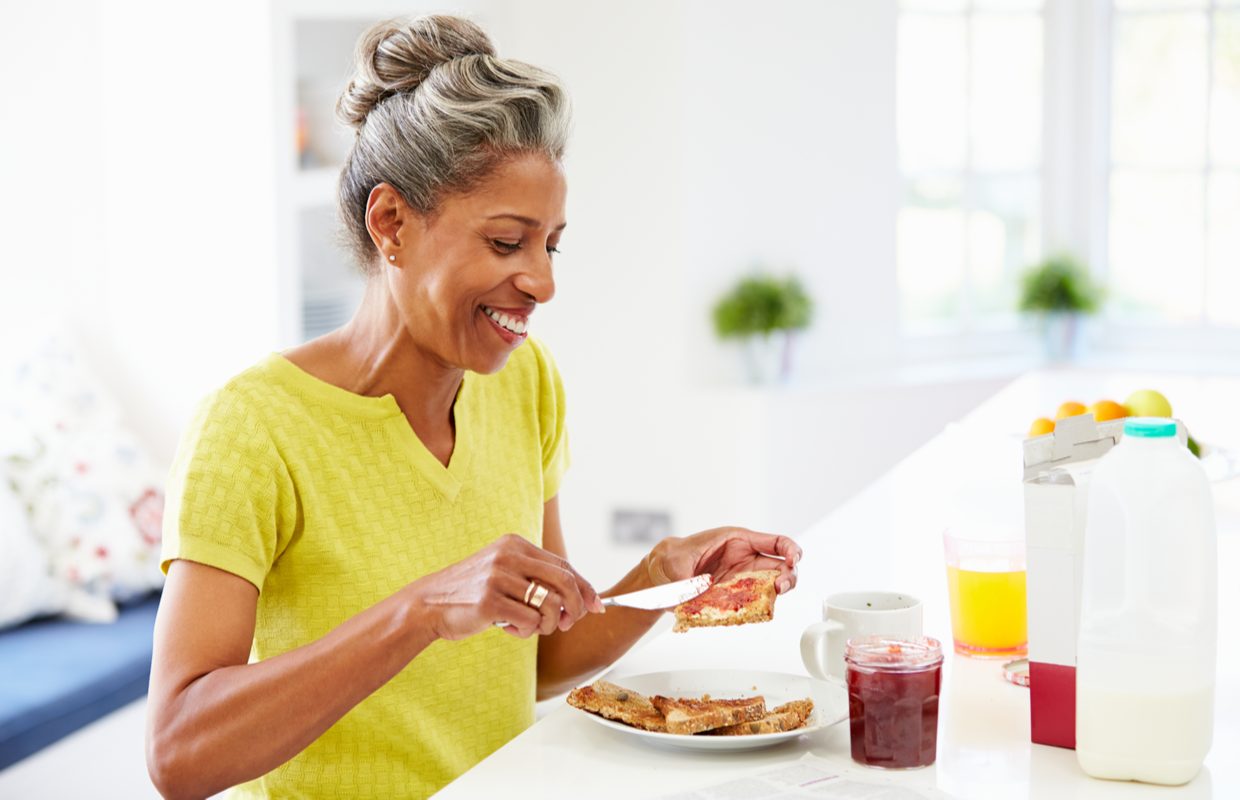
Q: I’ve heard that skipping breakfast is a good way to lose weight, but is this true?
Alison Cullen, nutritionist for A.Vogel:
‘A decent period when you’re not eating within the 24-hour cycle is, indeed, good for you. Known as intermittent fasting, it’s been shown to have a positive effect on weight balance. However, eating your evening meal earlier is more likely to positively impact your weight loss journey than delaying your morning food intake or skipping breakfast.
‘Research, whereby one group received breakfast and another a late-night snack of equal calorific content, found that the breakfasters burned 15 grams more lipid over 24 hours than those who ate the snack. This suggests that fasting from dinner to breakfast is better for weight loss than skipping breakfast. Eating large meals late in the day can also muck up your sleep, producing a disturbed night and increased carb cravings the next day.
‘Eating your evening meal earlier is more likely to positively impact your weight than delaying your morning food intake.’
‘Try eating without distractions. A large-scale study found that eating when distracted increased the amount eaten at that meal. This was even more prominent with meals eaten later into the evening. When people thought about what they had eaten earlier on that day, it helped to reduce their food intake later on.
‘Also try A.Vogel Molkosan Fruit (£7.85). It’s an easy addition to your daily supplement regime and promotes better digestion to support satiety.
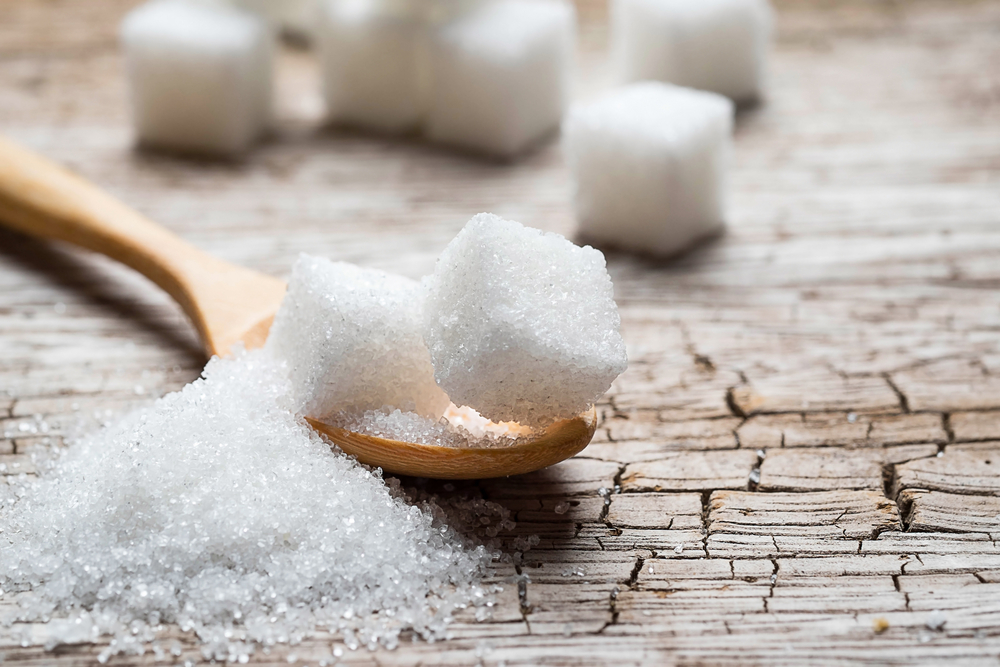
Q: I’m addicted to sugar, though I know it’s bad for me. What can I have instead to satisfy my sweet tooth?
Alison Cullen, nutritionist for A.Vogel:
‘Here’s the interesting thing. What you eat can affect how you think, which is why it’s so hard to break out of a sugar habit. Research has shown that rats fed a high sugar diet lost the ability to navigate effectively through a maze whose pathways they had already learnt. They also lost some of their ability to communicate with each other. Poor rats! And poor us, caught in a cycle of sugar and daft thinking.
‘If temptation is too much for your sugar-drugged brain, top up with omega-3-rich foods: oily fish, flaxseeds, nuts and seeds may mitigate the adverse effects of highly sugary foods. They also improve brain function. Try using a little coconut oil on your wholegrain toast, with almond or cashew butter.
‘What you eat can affect how you think, which is why it’s so hard to break out of a sugar habit.’
‘Lunch or dinner could include oily fish or avocado, or a salad with a dressing that uses flax or olive oil. Walnuts, celery with nut butter, or hard-boiled egg drizzled with avocado oil are options for upping your daily omega-3 intake. Ensuring you have good-quality protein at each meal will also help quell sugar cravings.
‘Watch your salt intake, too – salty food tends to tip you into sugar cravings, as your body tries to rebalance. Consider using cinnamon in your diet. It seems to reduce sugar cravings and hunger pangs. Chromium can also help your body deal better with sugar intake, improving satiety. Take a supplement of 200mcg up to three times daily with food.
‘Also, ensure your quality of sleep is good as research has found that improving sleep results in a reduction in how much sugar you eat. For sweet satisfaction, focus on dried fruit such as dates, which bring vitamin and mineral content to your diet, as well as gut-helpful fibre.’

Q: How can I eat well to manage menopause symptoms as I’m unsure about taking HRT?
Alison Cullen, nutritionist for A.Vogel:
‘It’s important to know that your digestive system may become a little more sensitive and/or sluggish during the menopausal transition. This is because your sex hormones have stimulating and soothing effects on your digestive tract. As levels fluctuate, your gut feels the impact. This is, therefore, a great time to take positive action to improve your diet and your digestive power!
‘A simple strategy to improve digestion is to ring fence your mealtimes. I know mid-life women are the last people to have time to prioritise any kind of ‘me’ time, and usually eat while doing at least three other jobs at the same time. However, sitting down, taking a breath or two, and taking your time over chewing your food properly, really savouring it, will have a positive effect on your digestive system, meaning you’ll absorb more nutrients from your food.
‘Next, include good quality protein with each meal. This is increasingly important during the menopausal transition: protein is far more valuable to you than refined carbs. You should gently label these as “occasional use only”.
‘Menopause is a great time to take positive action to improve your diet and your digestive power!’
‘Fill your plate with veggies as a diet of fruit and veg is associated with reduced risk of menopausal symptoms. Eat veg of all colours but favour the green, leafy variety for the beneficial effect on your gut bacteria and your brain.
‘Lastly, boost the dietary space you give to phytoestrogens. These are plant oestrogens which guard oestrogen receptor sites against harsh, environmental oestrogens. They can also gently support your oestrogen levels during the menopausal transition. Plus, they can even reduce the frequency of hot flushes.
‘They’re found in wholegrains, fruit and veg. Alternatively, you can choose a menopause supplement that contains them, such as A.Vogel Menopause Support (£7.75).’

Q: I’ve been diagnosed with Type 2 diabetes but am confused by all the diet information out there. What foods should I be focusing on to help manage it?
Nicki Williams, author, nutritionist and founder of Happy Hormones for Life:
‘Type 2 diabetes is a condition caused by blood sugar dysregulation and insulin resistance. It starts when excess sugar and insulin overwhelms the cells. This means a low carbohydrate diet is a key component to managing the condition and improving symptoms.
‘All carbohydrates in food break down into simple sugar when you eat them. For better blood sugar control, it’s best to avoid simple, refined carbs, such as sugar, bread, pasta, grains and alcohol. Instead, choose complex carbs that don’t spike your blood sugar, such as vegetables and high-fibre foods.
‘High-fibre carbohydrates include broccoli, cauliflower, asparagus, spinach, peppers, cucumber, salad
leaves, celery and other non-starchy veg. Nuts and seeds are also recommended due to their high fibre,
low carbohydrate profile.
‘Type 2 diabetes starts when the cells get overwhelmed with excess sugar and insulin so a low carbohydrate diet is a key component to managing the condition.’
‘You should include healthy fats in every meal, such as olive oil, oily fish, avocados, olives, coconuts, organic meat and poultry, butter, and nuts and seeds. Fats do not affect your blood sugar and are important for healthy cell membrane, brain function, nerve protection and hormone production.
‘You also need to ensure you’re getting enough protein, as this helps slow down the release of sugar into the blood. Good protein sources include high-quality meat, fish, eggs, dairy, beans, lentils, chickpeas, quinoa, nuts and seeds. Try to also stick to three good meals a day, unless you feel dizzy or faint between meals. Regular snacking encourages more insulin production, so it’s key to limit this.’
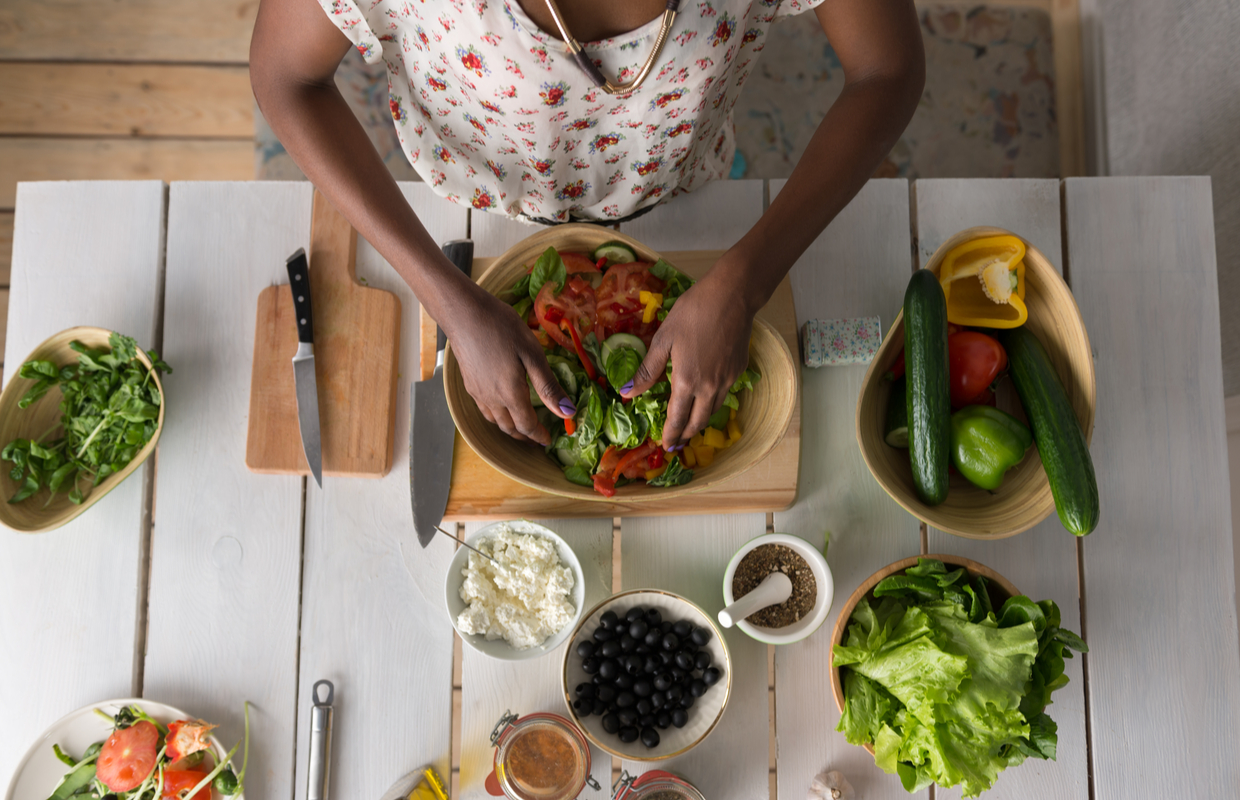
Q: I’ve just turned 50 and am keen to stay as healthy as possible, for as long as possible, but what foods should I focus on as I get older?
Nicki Williams, author, nutritionist and founder of Happy Hormones for Life:
‘During menopause, it’s so important to focus on nutrients in your food, not just calories. Hormones are changing, so they need lots of nutrients to support them.
‘Always fill your plate half full of veg – the more colourful the better. These are healthy carbs that will supply plenty of plant nutrients to your hormones and are also great for your gut bacteria. Focus on the cruciferous family as these are particularly helpful for detoxifying excess hormones through the liver.
‘Fat is your new friend! We need good, healthy fats for hormone production (especially as oestrogen declines), absorption of fat-soluble vitamins, keeping blood sugar stable and to fill you up and ensure you’re not hungry between meals. The best fats to add to your diet include coconut oil, olive oil, grass-fed butter, avocado, nuts and oily fish.
‘We need good, healthy fats for hormone production, especially as oestrogen declines in your 50s.’
‘You also need to eat a good level of protein, which is essential for blood sugar balance, energy, detoxification, transport and storage of hormones, bone and muscle repair. Go for good-quality meat, fish, eggs, dairy, beans, quinoa, nuts and seeds.
‘Finally, phytoestrogens help regulate your oestrogen levels, so they can be helpful for PMS and menopause symptoms. The biggest source is soy (organic) and flaxseeds, while lentils and chickpeas have some, too.’
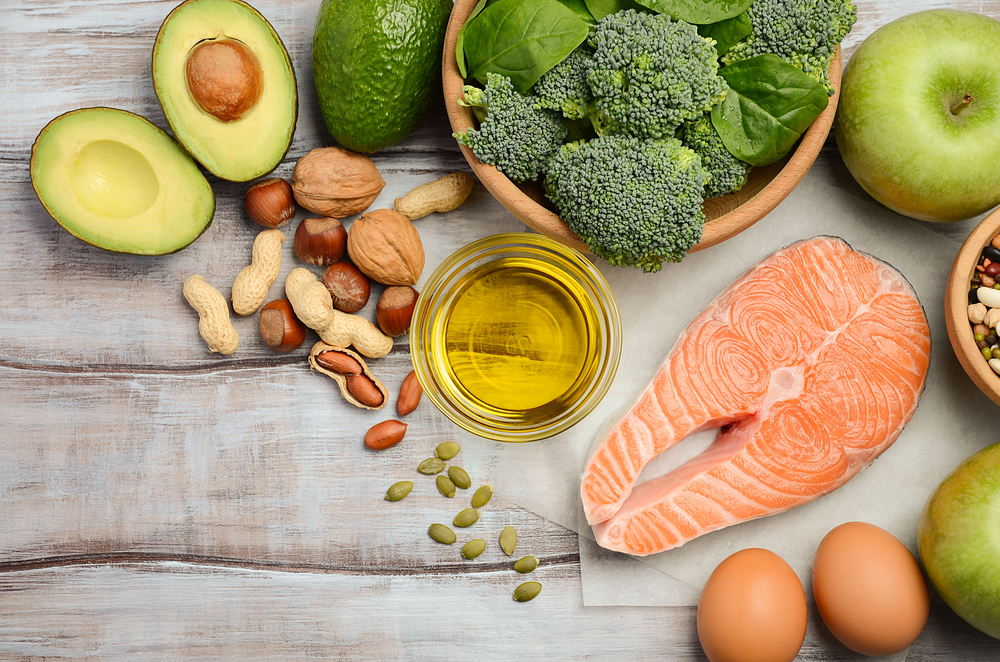
Q: I’m vegan and keen to get more omega-3 into my diet, without relying on a supplement. How can I go about doing this?
Emma Thornton, registered nutritionist at A.Vogel:
‘Vegan sources of omega-3 include flaxseeds, flaxseed oil, chia seeds, walnuts, walnut oil, hempseeds, seaweed and beans such as edamame or kidney beans.
‘Most vegetarian or vegan sources of omega-3 contain an essential fatty acid called ALA (alpha-linolenic acid). This form of omega-3 must go through an extra conversion process in the body in order to be turned into both EPA (eicosapentaenoic acid) and DHA (docosahexaenoic acid). These are the forms of omega-3 that are more readily found in fish oils and are well known for their health benefits.
‘The worry is that the conversion rate of ALA may not be too high, especially when it comes to DHA. However, research has suggested that algal oil, in particular, may be a superior form of vegan omega-3, with a better EPA and DHA conversion rate.
‘You should drizzle oils that are high in omega-3 over cooked foods rather than using them during the cooking process. This is because the heat can destroy the goodness within them.’
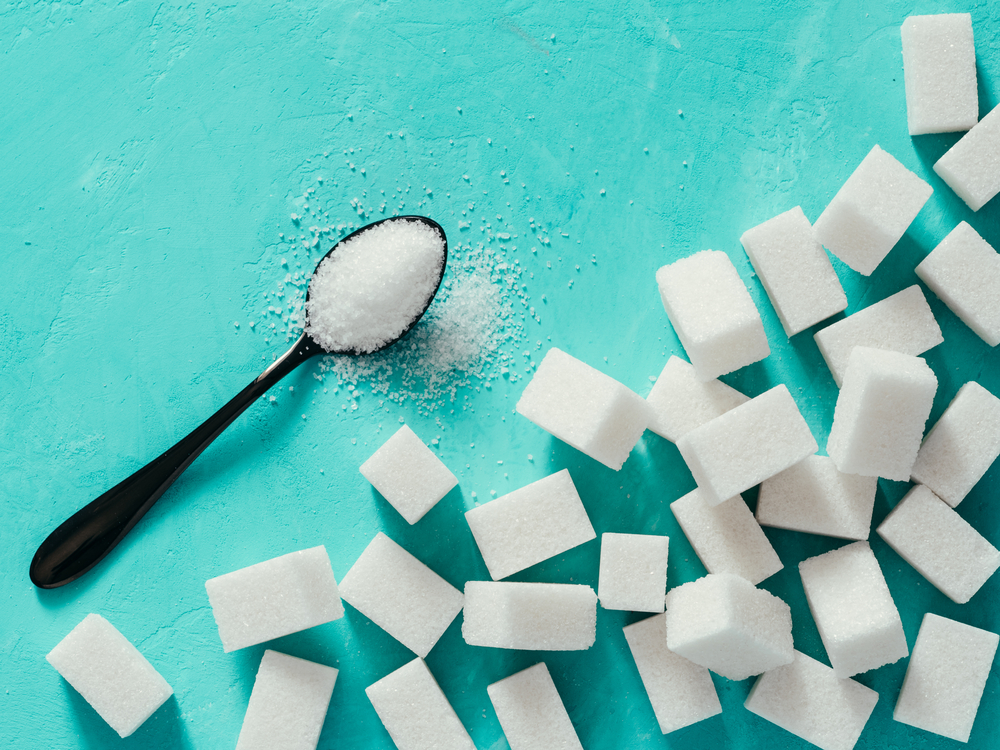
Q: What are “free sugars” and are they really bad?
Emma Thornton, registered nutritionist at A.Vogel:
‘”Free sugars” are the simplest forms of carbohydrates including glucose, fructose or sucrose. All carbohydrates actually contain ‘sugars’. However, depending on how intertwined in a food matrix they are, the effect they have on things such as your blood sugar levels will depend on how quickly you utilise them.
‘Free sugars come about as a result of refining carbohydrates. This strips them of most of their beneficial components, such as fibre or nutrients. These are then often added in excess to processed foods, and in quantities and in combinations whereby they wouldn’t be found in nature.
‘Free sugars come about as a result of refining carbohydrates. This strips them of most of their beneficial components, such as fibre or nutrients.’
‘Consuming them in this way can then have some adverse effects on your health. Combining some free sugars with a well-balanced diet rich in other complex carbs, nutrient and fibre-rich fruits and vegetables, healthy fats and sources of protein would be the safest way to consume them, if any.
Got a question for our experts? We’d love to hear from you. Please email topsante.talkback@kelsey.co.uk.




